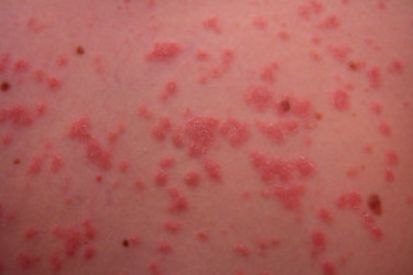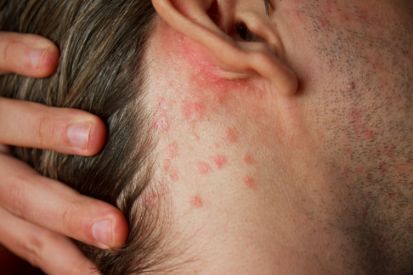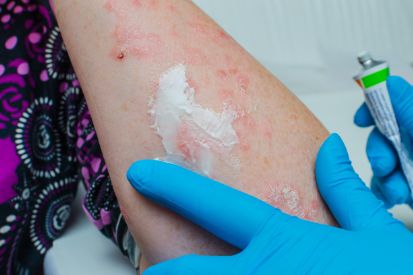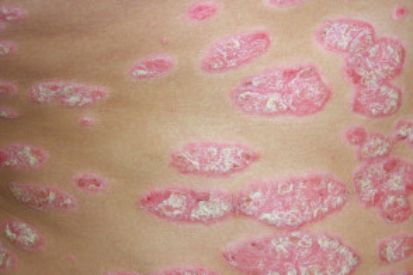Psoriasis
Psoriasis is a chronic autoimmune skin condition that speeds up the growth cycle of skin cells. This acceleration leads to the formation of patches of thick, red skin with silvery scales, often itchy and sometimes painful. These patches, known as plaques, can appear anywhere on the body but are most commonly found on the elbows, knees, scalp, and lower back. Psoriasis is not contagious and is believed to be caused by a combination of genetic, immune system, and environmental factors.
Psoriasis can vary in severity, with some individuals experiencing mild, localized patches, while others may have severe symptoms that cover large areas of the body. Treatment options for psoriasis aim to reduce inflammation, slow down the growth of skin cells, and manage symptoms to improve quality of life.
Psoriasis affects 4.5 million Americans annually and is slightly more common in women. The Dermatology & Skin Surgery Center at Creedmoor offers a variety of treatment options to help you navigate this skin condition.Examples of Psoriasis




What are the Symptoms of Psoriasis?
- Red, inflamed skin.
- Silvery-white scales.
- Itching or burning sensation.
- Dry, cracked skin.
- Thickened or pitted nails.
- Joint pain and swelling in some cases.
What Causes Psoriasis?
- Genetic factors: Psoriasis often runs in families, suggesting a genetic predisposition to the condition.
- Immune system dysfunction: Abnormalities in the immune system can lead to an overactive response, triggering rapid skin cell growth.
- Other health conditions: Psoriasis is associated with an increased risk of other health issues such as cardiovascular disease, diabetes, and certain autoimmune disorders.
How to Prevent Psoriasis
Psoriasis FAQs
No, psoriasis is not contagious. It is an autoimmune condition caused by a malfunction in the immune system.
Psoriasis flare-ups can be triggered by factors such as stress, infections, certain medications, cold weather, smoking, and heavy alcohol consumption.
While diet alone is unlikely to cure psoriasis, some people find that certain foods may trigger or worsen their symptoms. Maintaining a healthy, balanced diet may help manage psoriasis symptoms.
Stress is a common trigger for psoriasis flare-ups. Managing stress may help reduce the frequency and severity of flare-ups.
Some people with mild psoriasis may manage their symptoms with lifestyle changes, such as moisturizing, avoiding triggers, and using over-the-counter treatments. However, moderate to severe psoriasis often requires medical intervention.
Yes, psoriasis can affect children, although it is less common than in adults. It can begin at any age, including infancy, and often appears as red, scaly patches on the skin.
From Our QualDerm Family of Brands: Learn about Psoriasis
Psoriasis Treatments
- Oral and injectable medications that affect the immune system to control the psoriasis.
- Tight therapy treatment.
- Laser treatment and more.
Our dermatologists tailor treatment plans to individual needs, emphasizing a balance between managing symptoms and minimizing potential side effects. Regular monitoring and follow-ups with our team of skin experts are crucial for effective psoriasis management and to develop a health skin routine for years to come.
Featured Products
Check your local office for current stock!
Check your local office for current stock!
